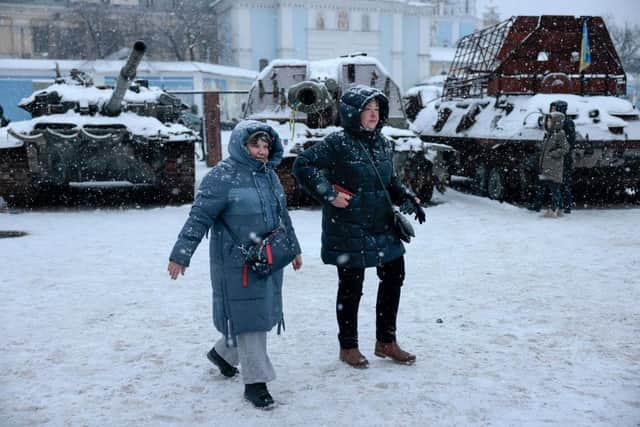Fighting in Ukraine running at ‘reduced tempo’, US intelligence claims
Avril Haines alluded to past allegations by some that Russian President Vladimir Putin's advisers could be shielding him from bad news - for Russia - about war developments, and said he "is becoming more informed of the challenges that the military faces in Russia".
"But it's still not clear to us that he has a full picture of at this stage of just how challenged they are," the US director of national intelligence said at the Reagan National Defence Forum in California.
Advertisement
Hide AdAdvertisement
Hide AdLooking ahead, Ms Haines said: "honestly we're seeing a kind of a reduced tempo already of the conflict", adding that her team expects that both sides will look to refit, resupply, and reconstitute for a possible Ukrainian counter-offensive in the spring.


"But we actually have a fair amount of scepticism as to whether or not the Russians will be in fact prepared to do that," she said. "And I think more optimistically for the Ukrainians in that timeframe."
In recent weeks, Russia's military focus has been on striking Ukrainian infrastructure and pressing an offensive in the east, near the town of Bakhmut, while shelling sites in the city of Kherson, which Ukrainian forces liberated last month after an eight-month Russian occupation.
In his nightly address on Saturday, Ukrainian President Volodymyr Zelensky attacked Western efforts to hit Russia's crucial oil industry, a key source of funds for Mr Putin's war machine, saying their 60 dollars-per-barrel price cap on imports of Russian oil was insufficient.
"It is not a serious decision to set such a limit for Russian prices, which is quite comfortable for the budget of the terrorist state," Mr Zelensky said, referring to Russia.
He said the 60 dollars per barrel level would still allow Russia to bring in 100 billion dollars (£81 billion) in revenues per year.
"This money will go not only to the war and not only to further sponsorship by Russia of other terrorist regimes and organisations. This money will be used for further destabilisation of those countries that are now trying to avoid serious decisions," Mr Zelensky said.
Australia, Britain, Canada, Japan, the United States and the EU agreed on Friday to cap what they would pay for Russian oil at 60 dollars per barrel. The limit is set to take effect on Monday, along with an EU embargo on Russian oil shipped by sea.
Advertisement
Hide AdAdvertisement
Hide AdRussian authorities have rejected the price cap and threatened on Saturday to stop supplying the nations that endorsed it.
At a virtual meeting on Sunday, a group of the world's top oil-producing countries is expected to stick to its oil output targets.
At their last ministerial session in October, the Opec+ group - made up of countries including Russia and the United Arab Emirates - agreed to reduce output by two million barrels per day from November in a bid to help boost oil prices.